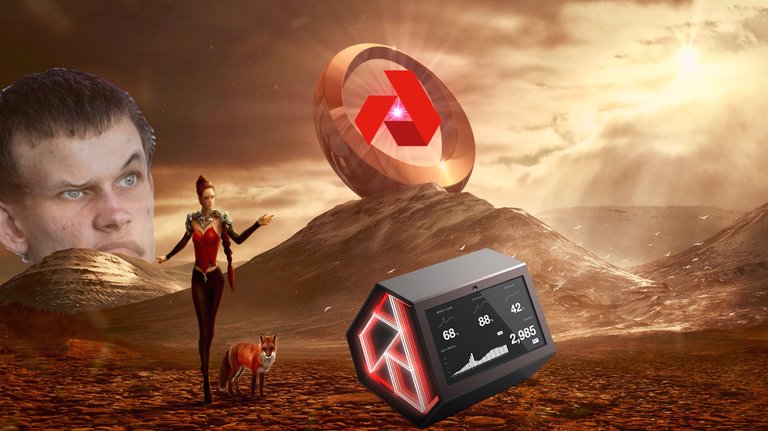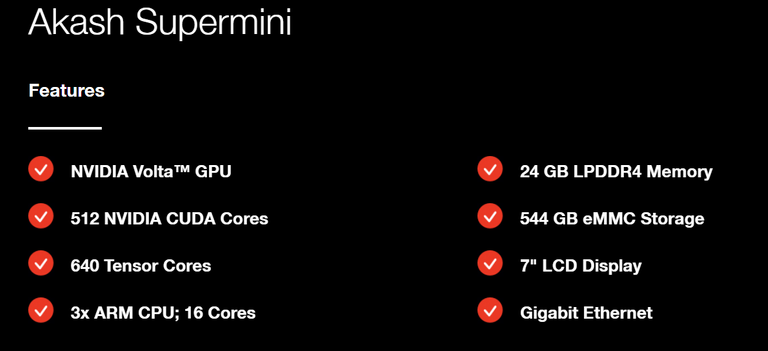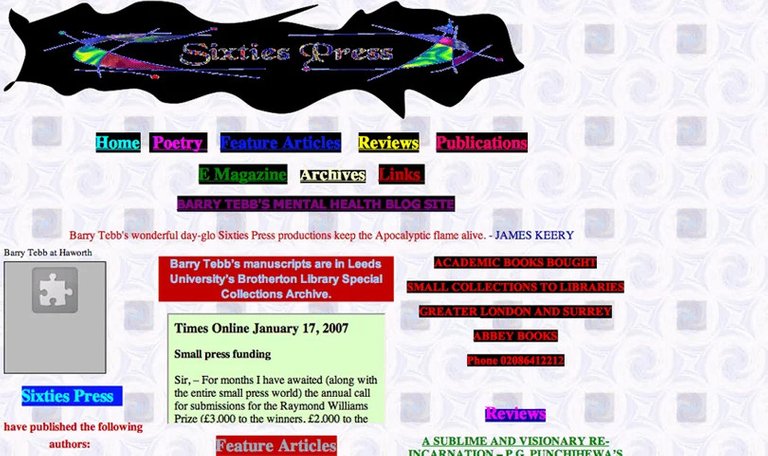
As your your balls (or ladynuts) delve deeper into the incredible Wild West Crevice that is The Cryptocurrency Space, your knowledge increases. Your ability to not trust, but verify becomes an incredibly fined tuned machine of precision. Your micropenis grows ten sizes larger, and your voice deepens to the point where James Earl Jones starts sounding like The Aflac Duck in comparison. People start getting entertained by your asshole opinion. They even do crazy shit like take you seriously. These are just normal things that happen, and I'm proud to be a part of it.

What I'm getting at is that while I had quite a few good ideas about how to do proper due diligence that I went over in a Previous Piece I wrote, I also made mistakes and grew from them in my journey to better understand and accumulate the Magic Internet Money. I love Magic Internet Money, and just like you (probably) I have a few goals in mind:
1.) Get Magic Internet Money
2.) HODL that shit as if my life demanded it.
3.) Make Money.
4.) Get More Magic Internet Money.
5.) ...?
6.) Get a Tesla. Model X. The one with the Back-To-The-Future-Doors.

Falling for the Bamboozles and getting those Jimmies rustled does not get me closer to the Tesla Model X. Or Strippers. That's what I'm talking about.
Enough Foreplay Ginger Man. Get To The Point.
Okay, fine. So, I was perusing around the Interwebs when I came across something... Cool. That was my first Instinct of course. There's this cool little Crypto Startup company called Akash Network, and they have what I personally feel is a really cool idea: Decentralized cloud computing. Now, the idea of having a distributed computing isn't a new idea by any stretch of the imagination, people have been doing for a long time such as the famous Folding@Home Project. Big deal, right?
Here's the difference; They wanna sell you a device. A REALLY well endowed device that can do computing for others in a distributed, decentralized manner. That is pretty goddamn awesome. Oh, Wanna see it? TAKE A LOOK AT THIS BABY:

So, after thoroughly jizzing at the eye candy here, I read the copy and stopped. Wait, what? The most POWERFUL PORTABLE SUPERCOMPUTER? That sounds a little... Uh... That's a big claim to make on a couple levels. What is in this damn thing that makes it so damn powerful and portable?
This is where the Due Diligence Switch flips on, and this is really important for me, because my computer boner tells me OHHH YEAH GIMME DAT NOW. And honestly, I'm not suprised. Any marketing team worth their salt is gonna come up with something like this that is going to appeal to a lot of people. I mean, look at that shit! That looks like it should be in a Jeffries Tube on the Starship Enterprise. Sign my ass up.
What's Inside this?
Here's what they claim is inside this baby:

My first impression is if they got this then GODDAMN. That's a lot of processing power in what looks to be the size of a breadbox. Lots of Cores. Lots of RAM. Lots. That would Fold me a shitton of proteins and earn me a shitton of BANANO. Those tensor cores are used in shit like freaking deep learning and stuff. Wow.
But, what the hell is Akash?
Akash: The Future of Decentralized Cloud Computing (WHITEPAPER)?
I always recommend this to anyone who is interested in getting their feet wet in a new project; The FIRST and MOST LIKELY BEST exposure you're gonna get from an up and coming project regarding their feasibility comes in the form of their whitepaper. Beware the window dressing; they make the front of those websites look damn good (most of the time) and they are specifically designed to make you feel awesome. That's its job, and be glad that it is. A big reason we went from the stone age Web 1.0 to today is in no small part due to presentation. Remember; Websites used to look like this:

Anyway, you get the point. Websites got "better" for the most part, and while I technically take issue with some elements of design and the state of Javascript nowadays with its 8 BAJILLION different frameworks, I still think that in terms of presentation, our modern day shit wows a lot better than it used to. This helps marketing. But I digress.
The purpose of the Askash network is simple; In their whitepaper, they show that the current zeitgeist of cloud computing is dominated by a seletct few companies (Microsoft, Google and Amazon) These are the biggest players in the game, making up about 80 percent of the payload of cloud services, which incidentally makes up about 50 percent of ALL TRAFFIC. Put that in your centralized pipe and smoke it.
On top of this, they say that the current layers of technology that these companies use lock in the developers and keep them from innovating and the current way of doing things requires a ridiculous amount of capital infrastructure, seeing as they need to build BIG ASS facilities with BIG ASS server farms and computing resources, all in one place. That's a bit of a problem. Not only are the upfront and upstart costs for cloud computing ridiculous for the company, it is also ridiculous for the customer. Prices are high all around.
The Akash Network, they claim, is the answer to the problem. How does that work? Well, They wanna provide a t network that does 3 things:
Lowers to barrier of entry for people to become providers on the network (you know... the people who give computing power from their sweet ass Supermini).
Provides easy access to clients who need computing power (which they can get by bidding on resources from providers)
And, provide a blockchain and token for use in the ecosystem that serves as method of reward for the providers. This is a Proof of Stake Blockchain, and governance is what they call "Politically Decentralized", which basically means no one provider controls the network, and the way their delegation is set up, there's no incentive to "extract marginal revenue". That's cool, especially considering the state of some blockchains ACHOOO JUSTINSUNTEEMITFUCKTHATGUY. Sorry, allergies.
Awesome.
Let's Have a Look at The Tokenomics (TOKENOMICS WHITEPAPER)
This is a special project because they have both a "technical" whitepaper, and a whitepaper that goes over the intricacies of their token economics. I like this, especially because the tokenomics are typically integrated into the whitepaper itself. They got a WHOLE NEW DOCUMENT for this one, folks.
To begin, they lay out the economic state of cloud computing in today's world. Holy shit, did you know that the industry is over 32 billion dollars and expected to reach over 200 billion by 2022? Oh... That's awesome.
That's really cool and it tells me two things:
1.) They are getting into an industry that is expected to have some serious growth.
2.) If they act fast and prove their network... "works", they can get a really nice piece of that cloud compouting pie. Think about it; 80 percent of the industry is run by the big Turd Companies. Even if they get 1 percent of that market share by 2022, they are looking at a 2.2 BILLION dollar revenue stream, and that only gets better over time. That's amazing... IF They can do it.
I'm no professional in cloud computing, but seeing its efficacy manifest in projects like Folding@home , I have confidence that at LEAST in principle, they can do well if they meet their claims.
But what about their Token, AKT? How The Hell is That Used?
I don't wanna bore my readers to death with stuff like inflation formulas and calculus, but if you're interested in learning more about this because you have the requisite knowledge, please refer to the tokenomics paper.
Basically the economics work like this: Delegators of tokens get a reward for using their tokens to help the network (those who PoS part of the Akash Network). Providers get a fee for providing computing cycles to the network, and act as both delegators and validators because they need to keep a particular amount of AKT in the coffers. Tenants get paid by leasing their computing power people. They sell their cycles in an auction process. People buy the power in the auction process and the circle of life is born. Add in the selling of rewards and fees on exchanges, and you got yourself a pretty good method of inflows and outflows. Not bad.
I think their economics are pretty well laid out, and it seems to have a cycle that can very much be used over time. Compund this with the fact that they will more or less "transfer" some of that market share value to the token by using it, you could very well expect this to be something that would increase in value over time.
At the time of this writing, AKT is not yet in circulation. We know that there will initially be 100 million tokens in place at first, and that is expected to increase over time. That's pretty reasonable, all things considered.
THE BOTTOM LINE.
Of course, the first rule of Due Diligence is to not to listen to what I tell you. The Asshole Opinion is graciously given, but also humbly accepted. I think this project has some pretty good potential, and their product design seems really great. I REALLY want to run my own miniature computer and earn sweet ass crypto as a result. But, there are some issues:
1.) OBSOLESENCE. If you have been a member of Humanity for more than 20 years, you know that computer stuff tends to get outdated relatively quickly. This isn't as obvious as it was in the 90s since we are kinda hitting the limit for Moore's law at the moment. Until photonics or sub nm transistors are possible, I don't think we are gonna see a major improvement in performance anytime soon. What this tells me is that while the product they offer might stay relevant for longer, they might eventually reach a day where they would REALLY like their validators and providers to do an upgrade. This is not so easily done, but I figure if the validators and providers are doing well, they should be able to afford not only upgrades, but additional units as well. Put that old unit on the back and still keep it hooked up; people will use it. Bring on the Supermini 2.0 with photonics and easy access to Pornhub. As long as it runs Crysis, I think they will be okay.
2.)POWER. Now this is a big one, and I think they were REALLY smart going with a PoS protocol instead of a PoW, because that would ultimately defeat the purpose of having additional computing power to play with. Basically, after all the PoS fun is done there's still a bunch of power that can be sold or used. That's nice, and I like that. But still, even that will need power. If I were to get myself one of these Superminis, I would want to find a way to keep it powered sustainably. That means I'm gonna put a couple kilowatt solar panels on the roof and max out my internet service to get this done. That will cut costs, and with all that being done, maybe I could turn a good profit. Hell, maybe eventually buy my own piece of land and expand operations. That would be the shit. I have dreams, folks.
3.) EFFICACY. This is the last and largest. I know that distributed computing works, but when you're dealing with things such as uptime and networks of people with different connections and such, can the process be run reliably? I don't know and I don't claim to know, but I hope it can because a decentralized cloud computing would be pretty badass. I want to see this succeed.
Now, after reading about this project and being really nerdy with technology, I know that I need to pace myself here. Why? Because last time I nerded out on Technology, I might have gotten myself involved with a bamboozle. I'm not saying LibertyOS is a scam, I'm just saying their social stuff isn't well maintained. We don't have enough access to them.
All I'm saying is look into them yourself. This ain't financial advice, and remember that if you don't have your due diiligence, you don't have a proper plan of investment.
Thank you SO SO much for reading, I really appreciate it. Please check the backlog if you like the content!
Until Next time, keep your eye on the markets and Disregard Females, Acquire Akash.
Thought you meant Akasha first which was meant to be a "competitor" of Steem back in the day but built on ETH. Ahh, so many that have come and are now long gone. Gonna read the rest of the post once I've grabbed more coffee.
Damn, your writing style is hilarious. 😂
I kind of have mixed feelings about Akash supermini but it looks neat for sure. Anyways, they ship the first pieces to US only so I couldn't order one even if I wanted to - hopefully somebody here will be able to tell us their real life experience with it.
Im thinking about giving it a shot, it looks pretty good. We shall see!
Great post! Curious if you ended up acquiring a supermini? Akash cloud computing is in the mix to support Thorchain nodes which, if successful, could be a game changer for DeFi and crypto and huge for Akash.